Photo: Ashley Osborn
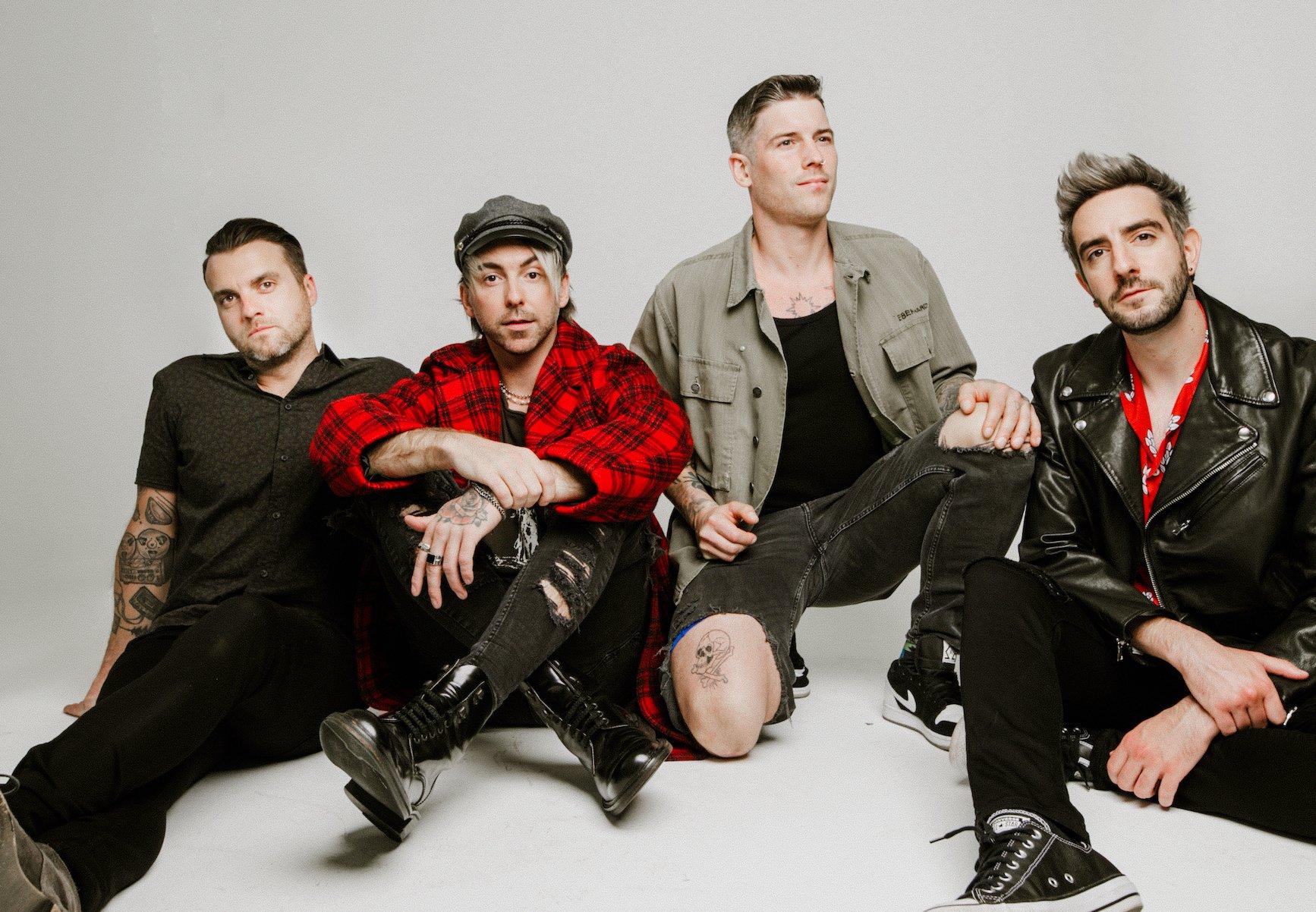
interview
20 Years Of All Time Low: Alex Gaskarth Looks Back On The Band's Career Milestones
After All Time Low celebrated their 20th anniversary with a special tour and some re-recorded classics, singer Alex Gaskarth shares some of his favorite memories from the band's biggest moments.
This summer, All Time Low have been commemorating 20 years together by revisiting some of their favorite venues around North America. Aptly titled the Forever Tour, the celebratory trek gave frontman Alex Gaskarth a revelation: his entire adulthood has been with the band.
"There's a lot of crazy things to fathom in getting your head around that concept," he tells GRAMMY.com. "We became the people we are today with the band being our primary focus. It doesn't always feel like it's been 20 years, but at the same time, it obviously feels like it's been 20 years. It's been my whole adult life, and it couldn't be anything else."
Gaskarth and his bandmates — guitarist Jack Barakat, drummer Rian Dawson and bassist Zack Merrick — started All Time Low while still in high school in 2003. For the first 10 years, they were mainstays of the pop-punk scene thanks to multiple Warped Tour stints and their 2008 classic, "Dear Maria, Count Me In." The next 10 years saw a commercial breakthrough, first with 2015's Future Hearts and then with their 2020 smash, "Monsters."
When thinking about the next decade of All Time Low, Gaskarth insists they've hit a new stride. Not only are they selling out some of the biggest venues of their career, but they're playing longer shows than ever. "We're those veteran athletes that, like, their bodies have been through so much punishment that now the scar tissue and cartilage buildup is holding them together," he says with a laugh.
Though the Forever Tour wrapped in their native Baltimore, Maryland on Aug. 24 — their biggest hometown show to date — All Time Low are continuing the celebration with The Forever Sessions Vol. 1. The nine-song project features re-recorded versions of some of their signature songs, including "Dear Maria" and beloved deep cut "Jasey Rae."
As the first release on their own label, Basement Noise Records, Gaskarth hints that The Forever Sessions Vol. 1 is the start of an exciting new chapter. "We made this year about celebrating the legacy," he says, "but we've also teed up a bunch of things to knock down in the future."
Below, hear from Gaskarth about some of the band's most memorable milestones — from playing their first Warped Tour to feeling like true rock stars at Red Rocks Amphitheater.
Signing Their First Record Deal With Hopeless Records
The Emerald Moon Records phase of the game was pretty loose in terms of what a record deal was. It was this guy — his name is Matt — he took us under his wing. He just saw a bunch of ambitious kids that wanted to give music a real go. He basically fronted the cash for us to do some real recordings and press a real record. I don't think we ever signed a piece of paper; it was done on a handshake deal. And then as we sold those records [2004 EP The Three Words to Remember in Dealing with the End and 2005 full-length The Party Scene], we paid him back.
I have to give Matt and Emerald Moon Records a ton of credit, because I don't think we would have signed a more national, international record deal without it. He helped us legitimize ourselves and be taken a little more seriously.
There were lots of bands around at the time that were a lot better than us, so it kind of took the right fit. We didn't even do a true showcase for Hopeless Records, so they took a leap of faith. I think what they loved was our ambition and our self-motivation, and [that was] maybe more important than how good we sounded.
I don't think we realized at the time that our career was starting to take off. I think we were just starting to scratch the surface of having a career, and this becoming our livelihoods. Signing the deal felt like confirmation we're doing the right thing. It was making it all real.
[Hopeless] basically encouraged us to repurpose the Emerald Moon full-length. That was our first point of contention with the label. We were pretty insistent that we were going to go in and re-record those songs. In that batch of songs, we also wrote "Coffeeshop Soundtrack" and "Jasey Rae." Looking back now, I'm really happy that we pushed the label to let us make something new, even if it was some re-recorded songs. Because as the career got more serious, that EP, Put Up Or Shut Up, felt like the first stepping stone.
Playing Their First Warped Tour
We weren't even significant enough to [be] assigned a stage. It was kind of like we would show up and then take what we could get. At that stage of the game, it was like, "We'll find a place for you, but you've gotta wait. Come talk to us in the morning." There was a stage called the Kevin Says stage, which was [founder] Kevin Lyman's chosen baby bands. You had to help build that stage. It was like a circus — it came in on the back of a truck, and if you wanted to play it, [helping build it] was almost like a rite of passage to be taken seriously.
I remember showing up at 7 [a.m.]. Two of us would split off, carry our merch to our merch tent and start building the merch area close to some bands that did good numbers — we wanted to be around where the big crowds were. The other two of us would start wheeling our gear in and help put this damn stage together so we could play the show.
It was really intimidating. We would see people from bands that we loved walking around everywhere, and we were suddenly part of it. Then you're also trying not to fan out too much. And we were like, "Yeah, no, we belong here… but also, that's Patrick Stump [from Fall Out Boy]."
I had a lot of moments where I'd walk around with our CDs and be like, "Hey, like my band!" It was a funny juggling act of imposter syndrome, not feeling like we belonged yet, while also learning to hustle ourselves to the crowds that were showing up. It was about establishing grassroots foundations and building a fan base. Had we not done it that way, I don't know that we would have made it 20 years.
Working With Blink-182's Mark Hoppus
I don't think we'd be a band without blink-182. Over the years, as we got a little more recognition, Mark reached out and asked to write together for All Time Low. It was either for [2009's] Nothing Personal or [2011's] Dirty Work. We worked on a song that didn't make a record, but it was the start of that friendship.
Mark's super funny and sarcastic; blink-182 are funny guys. So I would always try to be funny, but then I'd cringe at my own attempt to be funny, and he'd just roll his eyes. I have to give him so much love, because he saw whatever it is that people see in us, and took a shot on us. And even though the songs didn't come out, he continued to be a supporter in the wing.
Fast forward a little bit, and we were working Future Hearts. At this point, we were texting buddies. I was like, "Hey, I think we have this song that you'd sound really cool on. Would you be open to doing this together?" He came on board for "Tidal Waves," and that was another special moment for us as a band — Rian had started engineering and producing a bit, and he engineered the session.
Mark's a really good friend of mine now, and we've gone through a lot together. I don't know that I really think about it, but if I zoom all the way out and think about our career and the way things have gone, yeah, I absolutely pinch myself. It is a dream come true for who I was when I started doing music, but now I just feel lucky to know the guy, because he's a really good dude. Sometimes you can meet your heroes.
Touring Europe With Green Day
I would say that blink and Green Day are the two powerhouses [that] shaped All Time Low. It was blink's friendship, and their antics, and the lightheartedness while still being a rad punk rock band. And then it was Green Day's performative value. Billy [Joe Armstrong], in my opinion, is one of the best frontmen. They're so polished. They're so perfect every time they play.
When [Green Day] asked us to come out with them in Europe and support some shows, it was another one of those boxes checked, like, Hell yes — our heroes are seeing us for what we are, and they're seeing the fact that we're growing, and it's connecting.
It was some of the biggest shows we've ever played overseas. But for me, also, being a UK native and getting to play Emirates Stadium for all these people in England — especially being on the bill with Green Day — just a lot of special moments came along with that [tour].
As the front person in my band, it was really cool to share that stage directly and get to watch them every night and really focus on what makes Billy special and why he's so good at what he does. I've taken a lot of that from what they do, and I think it's made me better as a performer. I'll never forget Billy saying to me one day, "It's really awesome to see a band that works the crowd." It was this full-circle moment of being recognized for that.
The guys were so nice. Mike [Durnt] gifted Zack a bass on that tour. All of them made an effort to come and watch our sound checks. Down to their crew, the people that they worked with — everybody they kept around them was just cool. We walked away from that tour being like, "If we ever get that big, we've got to make sure that we're just as cool to the people that we bring out."
That tour helped us overseas tremendously. We went back after that and headlined, and all of the shows doubled in size.
Headlining Their First Sold-Out Wembley Arena Show
Wembley is such an iconic venue. It's such a special and memorable place, and the fact that our band made it to that level to where we could headline that show was a huge milestone. A bunch of my family that lives over there came down for the show. It was just a special moment, and it felt like a celebration of what we'd accomplished up to that point.
I'd just watched the Foo Fighters documentary where they headlined Wembley Stadium. That was such a crazy moment for them, and then we had this sort of parallel doing Wembley Arena for the first time. It made things feel as they were meant to, that we were on the right track.
We've gone back and done it again. We actually did a show pretty recently there, when our last album was coming out, we kicked things off with a show, and people came in from all over. We had fans from Europe, from up north in the UK, and people from Ireland. It was really rad.
Landing A No. 1 Album With 'Future Hearts'
A bunch of [our albums] up to that point had charted top 10, which was always really exciting, especially for an independent artist. But knowing that we were in contention for No. 1 was absolutely nuts.
In the UK, it hit No. 1. In the States, it also debuted at No. 1 based on sales, but it was the first week in history that they started counting single streams to weigh debuts. So we actually lost out to the Fast and Furious soundtrack. There was a lot of tragedy tied to that movie, and the whole moment [with the song "See You Again"].
I do think some of it was timing. We were riding a high from our last album, [2012's] Don't Panic, which did some really incredible things for us. That was our recovery record after having a pretty tumultuous major label album with [2011's] Dirty Work. We did the deluxe version of that [that included a song] with Vic [Fuentes] from Pierce the Veil. And we did this amazing tour with them in the States that did really well for us.
There was a huge amount of buzz for All Time Low coming off of that last record. And we came out swinging with what I think is one of All Time Low's bigger non-radio songs with "Something's Gotta Give," and things hit the right way. We had all this hype going into [the album].
I don't think we even perceived that we were having that kind of moment then. It was exciting to work with John Feldmann — that was the first time that we did a full record with him. We were kind of just riding this wave that was already crashing.
Earning Their First No. 1 Song At Alternative Radio With "Monsters"
When we were making [2020's] Wake Up Sunshine, we were living in this rented house in Palm Desert. We wrote ["Monsters"] and recorded the demo, and we were listening back to things that night. One of our writing collaborators on that song — he goes by Sweet Talker, his name is Kevin [Fisher] — looked at everyone and went, "That's a different level of special." We all felt like there was something about it.
The next time we were reminded was when blackbear recorded his part for the song. We got that version back, and went, "Oh, that's something we didn't know we needed." And then it wasn't really again until the song came out — because it wasn't the lead single, it was the single when the album itself dropped.
It was deep in lockdown, so the world was really odd. We weren't touring, so it was kind of really hard to gauge what was happening with the album and that song, other than that it was streaming well. But then we started seeing numbers rise and rise. We started to get calls [that] it's moving up the charts, and people are trying to find out more about the song and more about the band.
Then we started getting phone calls that we'd never gotten before: "Good Morning America," "Ellen," these late night shows. Then the song went on to do what it did — it hit No. 1 and maintained No. 1 for a really long time. I look at that and go, Wow, what a wild accomplishment to have happened 18 years into a career.
The nostalgia wave that happened with the genre that we came from, the Warped Tour world, and that whole thing, it felt somewhat tied to COVID and everything that we went through as a society. I think there were people seeking comfort from core memories. It was this perfect storm of people longing for something that they missed and weren't getting at the time, so that whole weird TikTok thing with "Dear Maria" happened. It was bizarre, because we had this brand new song that was radio's biggest alt song of the year, and also had "Dear Maria" going double platinum. We were like, This is a bizarre moment for All Time Low, but we'll take it.
It's funny that it happened that way. It speaks a lot to the way that this band operates. We don't shy away from where we came from. "Dear Maria" has always been the last song in our set. So it was a nice moment for all of us — the current version of All Time Low was popping off, and also the version of All Time Low that we started out on was popping off, too.
Selling Out Red Rocks — Not Once, But Twice
We hadn't done a ton of that size venues in the States headlining. So coming out of lockdown and everyone just getting back on their feet in the world of touring, but realizing we were doing some of our best numbers, we were kind of like, Can we do that kind of show? We had no barometer for how to measure that, other than to try and swing for it.
We went into it with really humble expectations. Red Rocks looks good if you do 5,000 tickets. We were like, we'll just have a great time. Then it blew through and sold out. It was just a holy s— moment in every respect.
It kind of set the tone for where we felt like we were going. We have worked so hard to get this band to that point, and it feels like we've earned it. Those are the places we belong as a band now. It sounds a little cocky, but, as much as we can do the small rock clubs and love doing it, I've always seen this band as an arena band. This should be a f—ing stadium band. Why not?
Going back and doing it for these Forever shows, the fact that we got to do it again, it solidified it wasn't just a moment. The second one was almost that much more special, because it was the longest show we've ever played to date. But it was also this confirmation that we've attained it, and it wasn't just luck. I think sometimes this band has been very lucky over the years, but more so, we've just worked our asses off to get things to happen, and that was kind of proof in the pudding — that we can rock with the best of them.
Latest News & Exclusive Videos
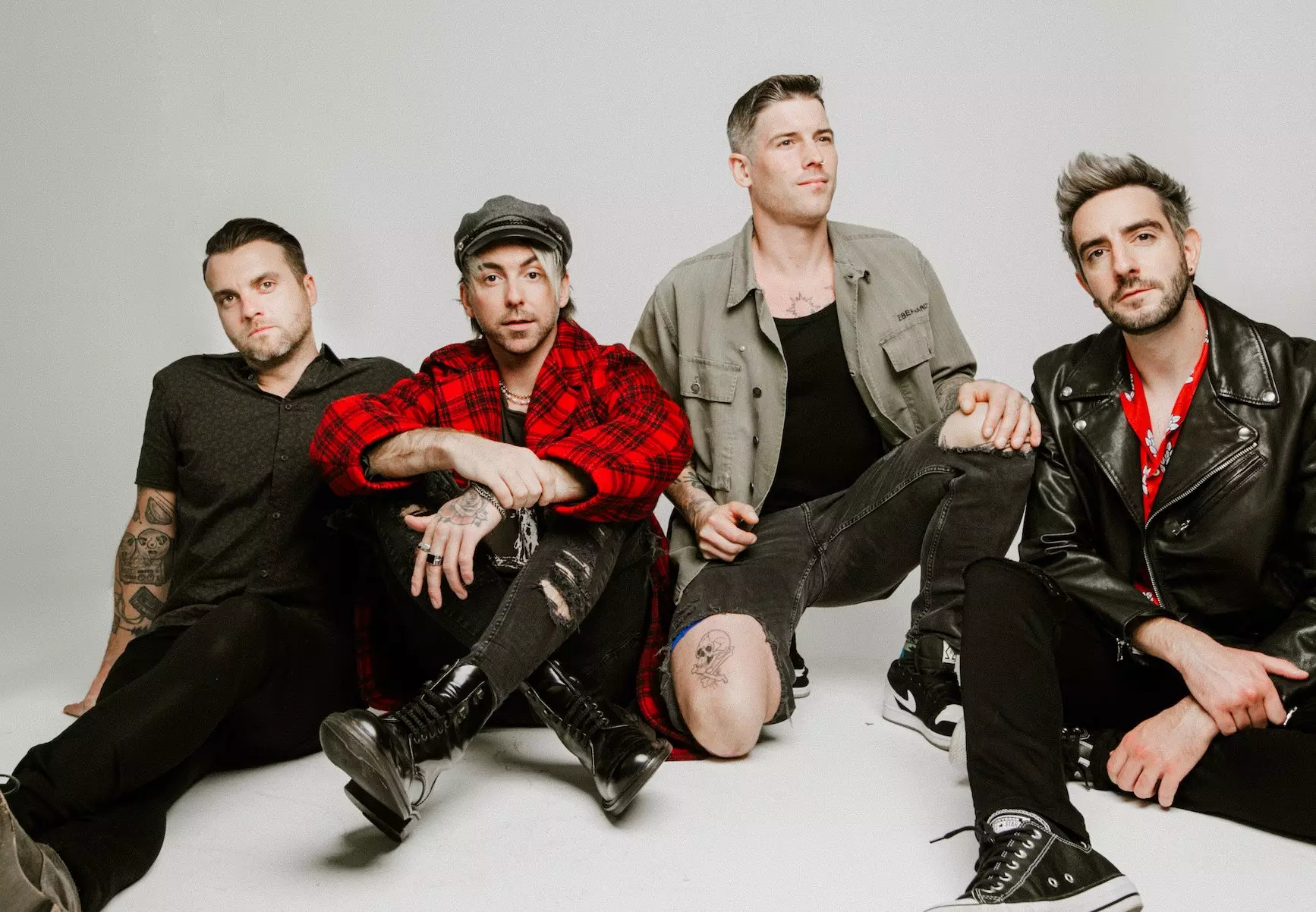
20 Years Of All Time Low: Alex Gaskarth Looks Back On The Band's Career Milestones
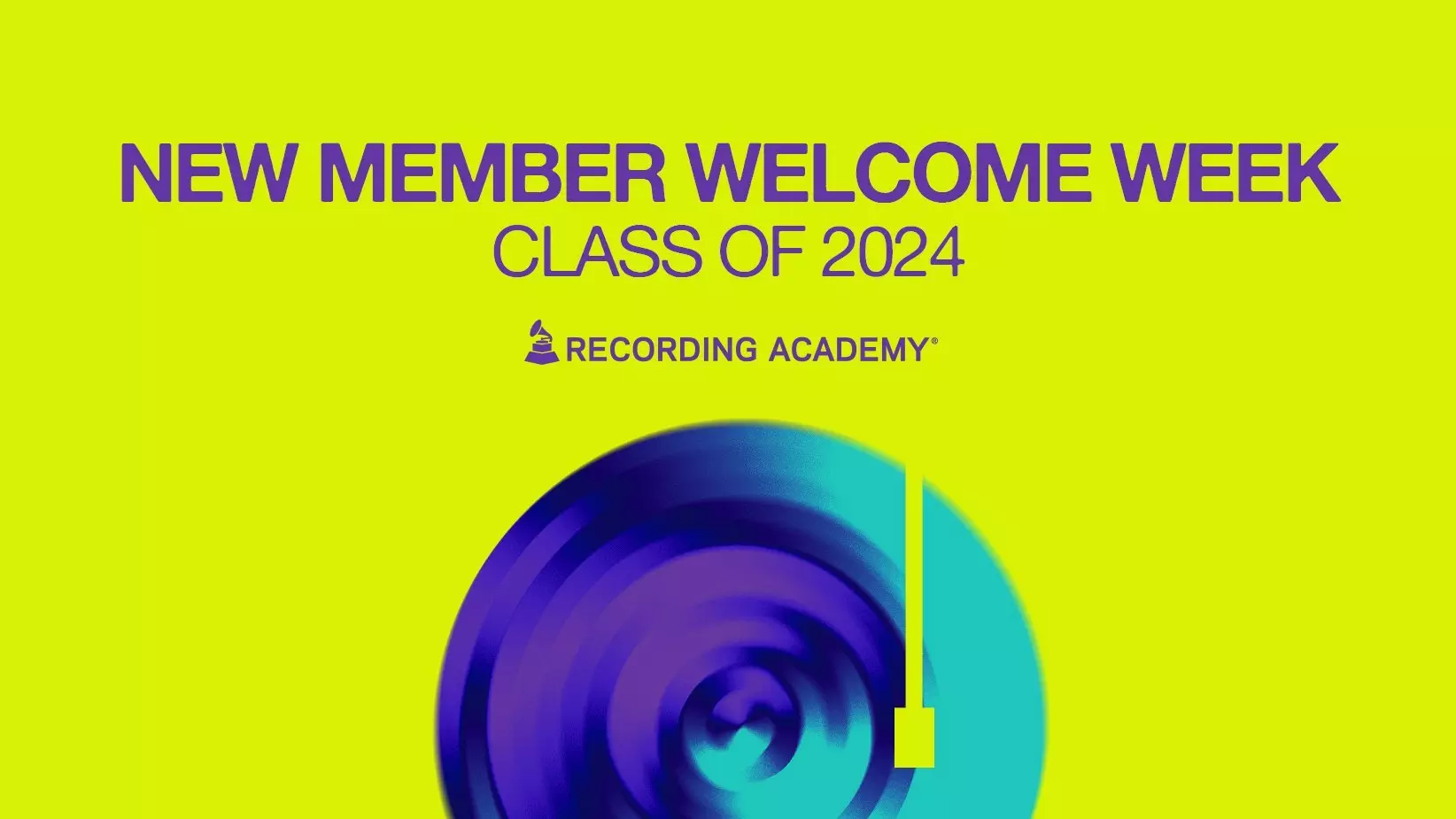
An Exclusive Look Inside The Recording Academy's New Member Welcome Week 2024: CEO Harvey Mason jr. Chats With Lainey Wilson, DEI, Advocacy & Much More
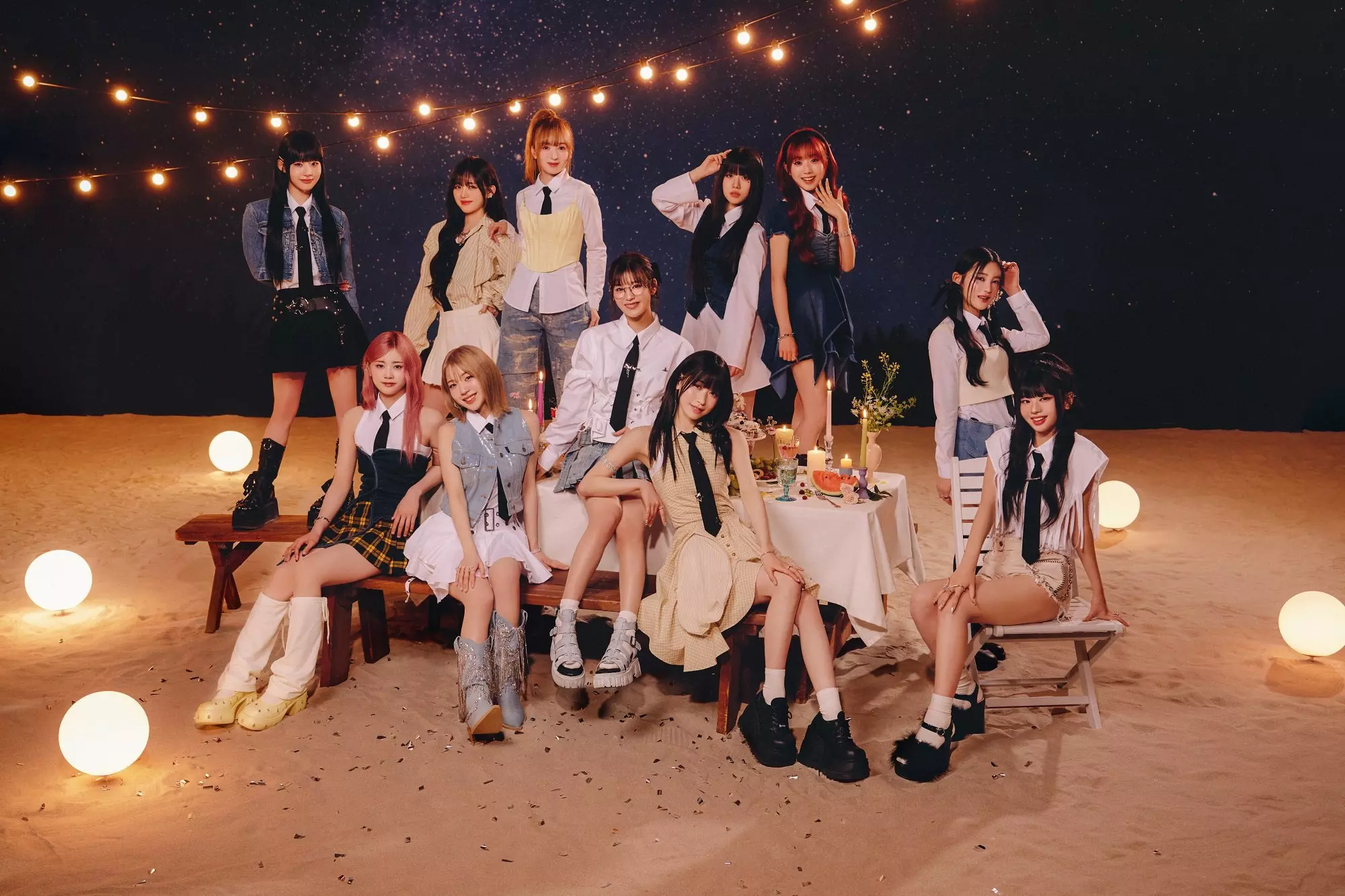
Meet ME:I, The J-Pop Group Who Want To Give The World A 'Hi-Five'
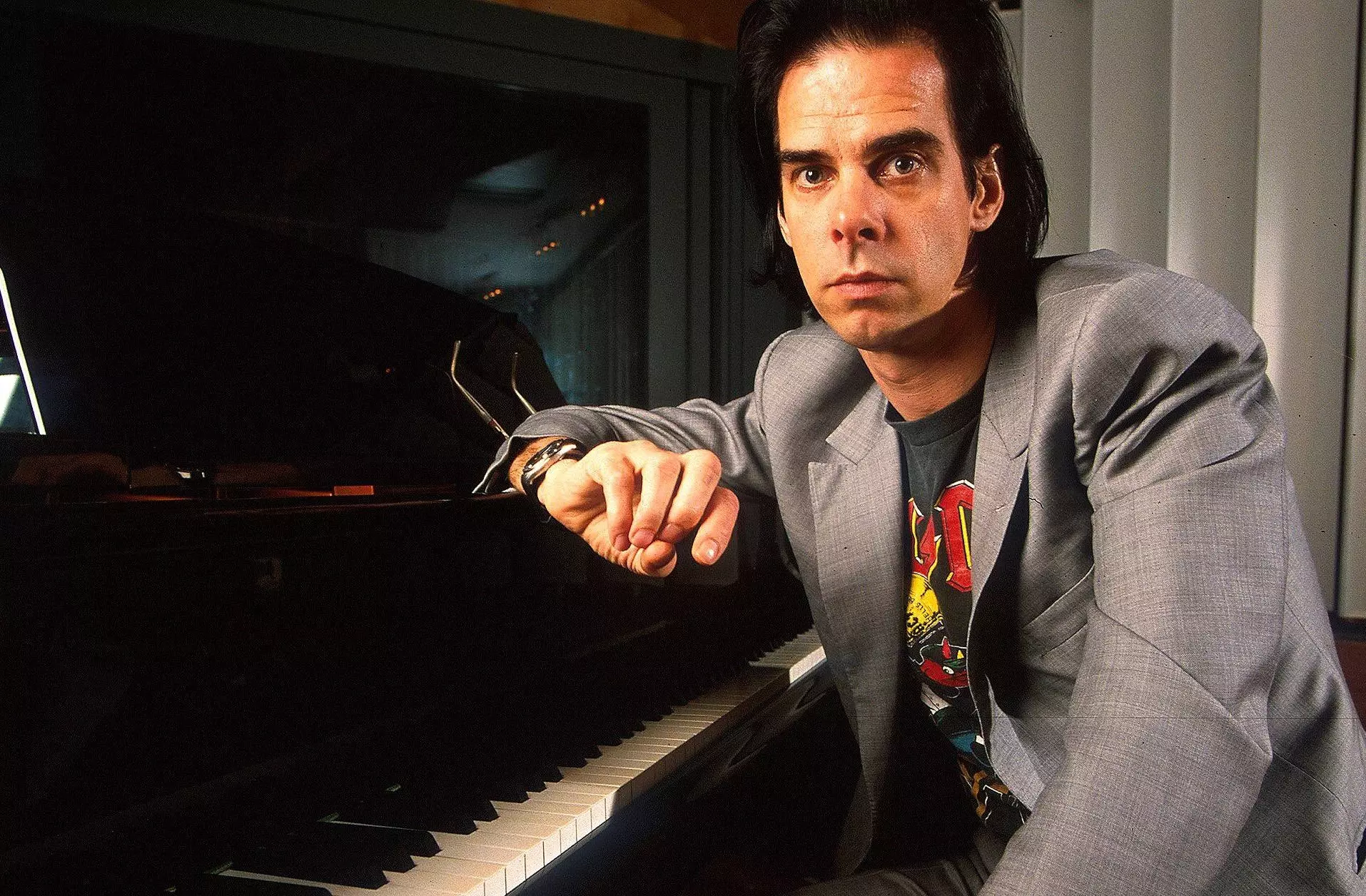
The Essential Nick Cave: 10 Songs Highlighting His Dark Brilliance
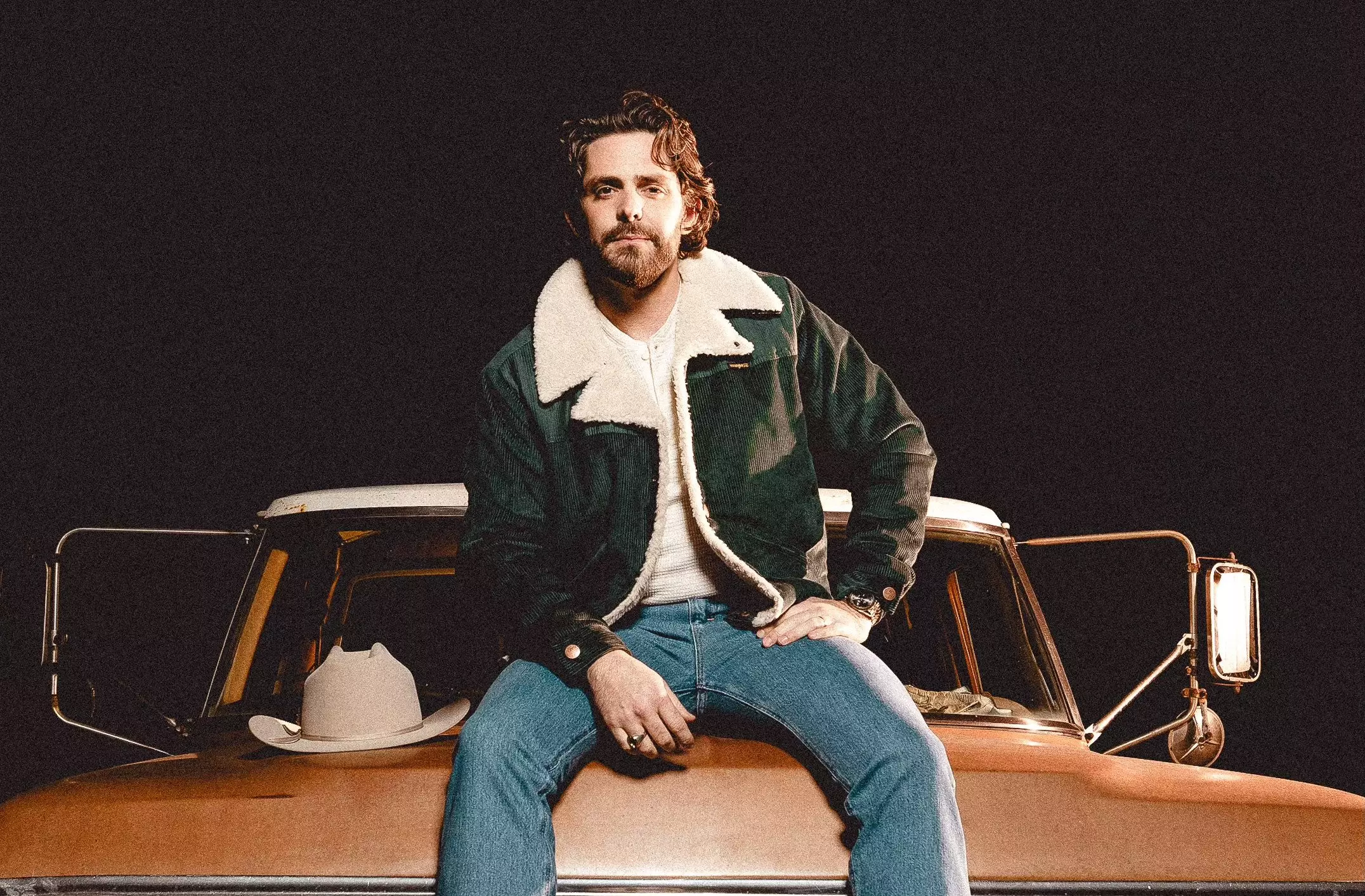
'About A Woman' Named Lauren: How Thomas Rhett's Wife Inspired His New Album
.jpg)
Photo: Zeus Lopez
feature
Revisiting 'El Nervio Del Volcán' At 30: How Caifanes' Final Album Became A Classic In Latin American Rock
Released in June 1994, 'El Nervio Del Volcán' was a high point of the rock en español explosion and a serious evolution in the Mexican band's sound. Decades after its release, GRAMMY.com explores the story behind and impact of Caifanes' legendary LP.
As its title suggests, the final album from iconic Mexican rock band Caifanes heralded an explosive new evolution in hybrid rock. El Nervio Del Volcán ("nerve of the volcano" in English), was the culmination of a years-long quest by the band to alchemize modern rock and Latin American music.
Released June 29, 1994, El Nervio Del Volcán represents a high point of Mexico’s rock en español explosion. The 11-track album — the band's fourth release — saw Califanes continuing to explore the sounds of Mexico and Latin America, while broadening their sonic palette with jazz and country.
Since their formation in 1987, Caifanes had been working to refine a sound that was both commercially successful, highly original, and beloved by critics and fans alike. For their efforts, El Nervio became the second Spanish-language rock album to chart on the Billboard Latin 50. Rolling Stone, which rarely gave Spanish-language music column inches, gave the album a glowing review. Caifanes became the first Mexican band to play on MTV’s "Unplugged" in October 1994. The next year, they opened for the Rolling Stones in Mexico City.
While Caifanes might have been the leading band of Mexico’s rock en español movement, they were part of a cohort that included bands like Café Tacuba, Maldita Vecindad, and Fobia — which were experimenting with new fusions of traditional Latin American and rock sounds. Caifanes was at the vanguard of the Mexico City-centric movement, and El Nervio showcased the band's skill in developing "strong hits, and experimental things, which I think kind of worked," music journalist Ed Morales tells GRAMMY.com.
In an interview, Mexican rock historian Federico Rubli calls the record "a very important album, that maybe in its time wasn’t sufficiently appreciated. Even today, 30 years later, it’s difficult to recognize how great a work it was." If the crossover success weren't appreciation enough, El Nervio is notable for the way in which it set a high standard in songwriting and production for other bands that followed.
Caifanes was daring beyond their sonic experimentation. Like most Mexican rock bands at the time, their music was prohibited from being played on the radio and they risked arrest for performing. By the time of their first concert at the legendary Rockotitlan festival in Mexico City in 1987, though, there was no stopping what would soon become a new rock movement. The following year, they broke through the government’s music blockade when their first single, "Mátenme Porque Me Muero" ("Kill me because I am dying"), hit the airwaves.
The follow-up single, "La Negra Tomasa," a post-punk inflected cumbia rocker that became a smash hit across the country, selling a record 500,000 copies. Their self-titled debut album was released shortly thereafter, with the band members looking like extras from a movie about goth subculture on the cover. Their third album, 1992’s El Silencio, found the band more musically confident than ever before. Producer Adrian Below — the former guitarist and frontman of King Crimson who had also played with David Bowie and Talking Heads — helped the band expand their musical palette with "cotton-candy high notes, rumbling ocean rhythms with upsurges that bellows like sea elephants," music critic Chuck Eddy wrote.
Everything changed for the rock en español movement in 1993, when the pop-rock outfit Maná, which played a syrupy mix of tropical-influenced music, sold a million copies of its second album, ¿Dónde Jugarán Los Niños? Record labels were suddenly pursuing the next hit-making Latin band and BMG, which had signed most of the major rock en español bands, considered Caifanes its star rockers.
The band had fractured as they prepared to go back to the studio, with original bassist Sabo Romo and keyboardist Diego Herrera leaving the group. With the increased backing by their label, the trio of lead singer/songwriter and guitarist Saúl Hernández, Argentine-born guitarist Alejandro Marcovich, and drummer Alfonso André traveled to Burbank, California, to record El Nervio Del Volcán GRAMMY-winning producer Greg Ladanyi (known for his work with Toto, Fleetwood Mac, and The Church) was brought into the O’Henry Sound Studios, along with a few special guests. Famed trumpeter Jerry Hey (known for his work on Michael Jackson’s "Thriller") and Graham Nash both appear on El Nervio.
The songs that Hernández largely wrote and that the other band members would coalesce around were heavily influenced by Mexican folkloric sounds, though Marcovich in particular introduced a variety of Latin American sounds with his guitar. Throughout El Nervio, Caifanes flows effortlessly between genres: a bit of rustic son huasteco ("La llorona"), jolts of metal ("El Animal"), and Caribbean rhythms ("Aviéntame").
Rubli tells GRAMMY.com that the album was notably different from the band’s previous releases, largely due to Marcovich being given leeway with the guitar arrangements. "El Nervio Del Volcán is a much more rounded album, more integrated, with a sequence in each song that is, you might say, more logical," he says in Spanish. "And a lot of that is due to the liberty that Alejandro had to arrange them as he wanted."
Soul-stirring anthem "Afuera" was an unusual choice for a lead single — it features an instrumental guitar interlude that lasts for more than a minute — but proved brilliant. Even Markovich, the guitarist who wrote the interlude, was dubious about its commercial potential.
"I never could have imagined it would be a single," he said in 2022 on the podcast "Cuéntame Un Disco." "I even told the record company that they might want to do a more radio friendly version without it, but they left it and it worked."
Today the song is popular among musicians on YouTube precisely because of its interlude.
Second single "Aqui No Es Asi" was also a hit. Marcovich, again on the podcast, said he was writing melodies on the guitar when he found an unusual rhythm "between Caribbean and Andean." "It was a strange mix," he said.
Hernández has been called the "poet laureate of Mexican rock," and has often weaved social themes and indigenous mysticism into the lyrics of his songs. In the propulsive "Aqui no es asi," Hernandez obliquely refers to two different places — one materialistic and out of touch with spirituality, and the other a land "where blood is sacrificed for love." The song has been interpreted as a criticism of Eurocentric values that have marginalized more indigenous ones.
The album slows down considerably with the acoustic, melancholic hymn "Ayer me dijo un ave." Now one of the band’s signature songs, the song is about strength in the face of adversity. Its lyrics are heavy with surrealistic imagery: "Yesterday a bird told me while flying where there is no heat," Hernández sings. "That the long-suffering are not resurrected in dreams."
Many of the other songs have become classics in Mexico and among Spanish-speakers in the U.S. Highlights include the full-throttle tropical-tinged "Aviéntame"; "Pero Nunca Me Caí," which features Nash on harmonica; and "Quisiera Ser Alcohol," a jazz-influenced lament with trumpet from Hey and a sumptuous fretless bass from guest Stuart Hamm.
More Sounds From Latin America & Beyond
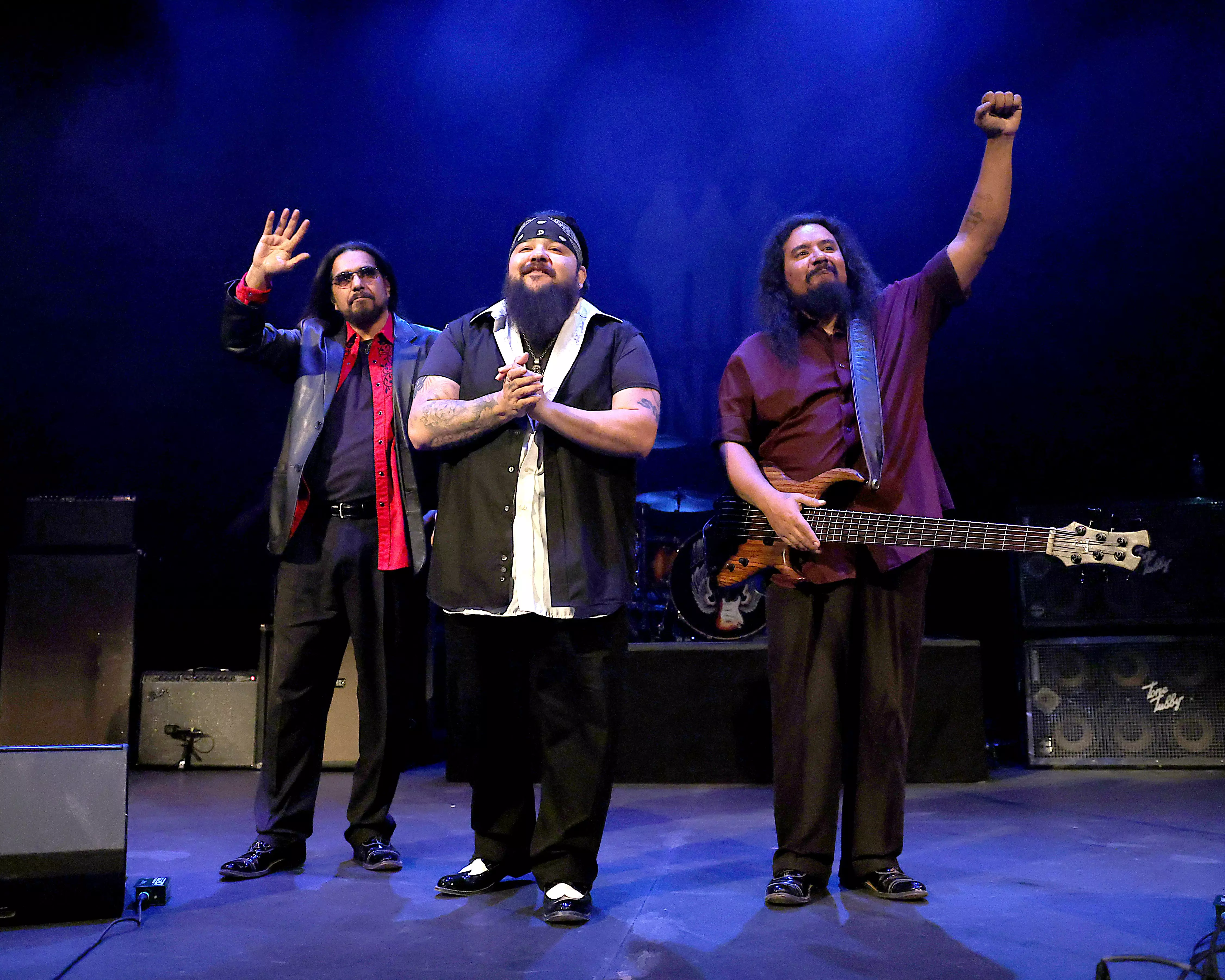
Los Lonely Boys Resurrected: The Sibling Rockers Talk Their New Album, Return To The Road & Family Magic
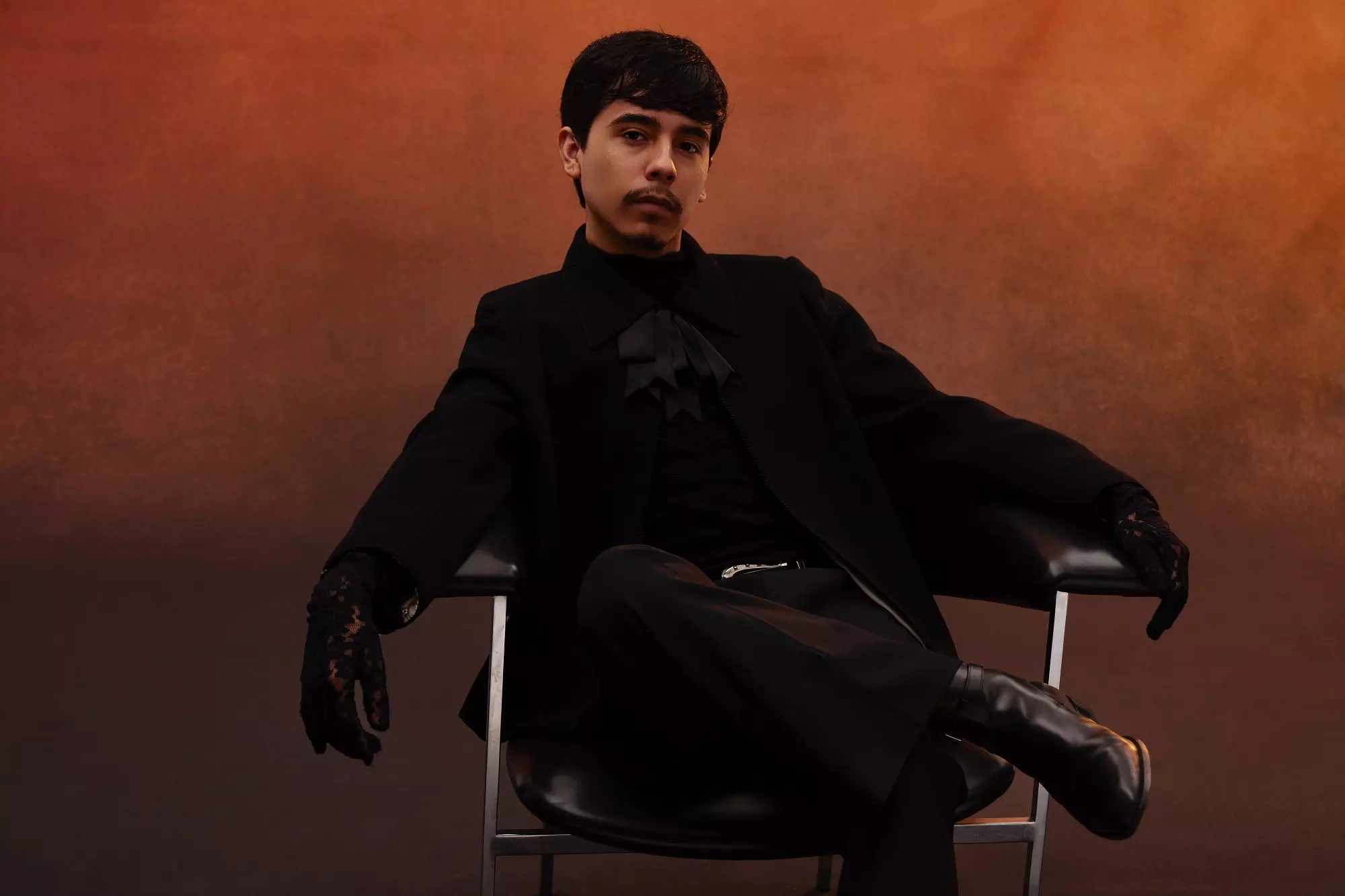
On 'Mirada,' Ivan Cornejo Redefines The Sound Of Sad Sierreño And Helps Fans Heal Through Music
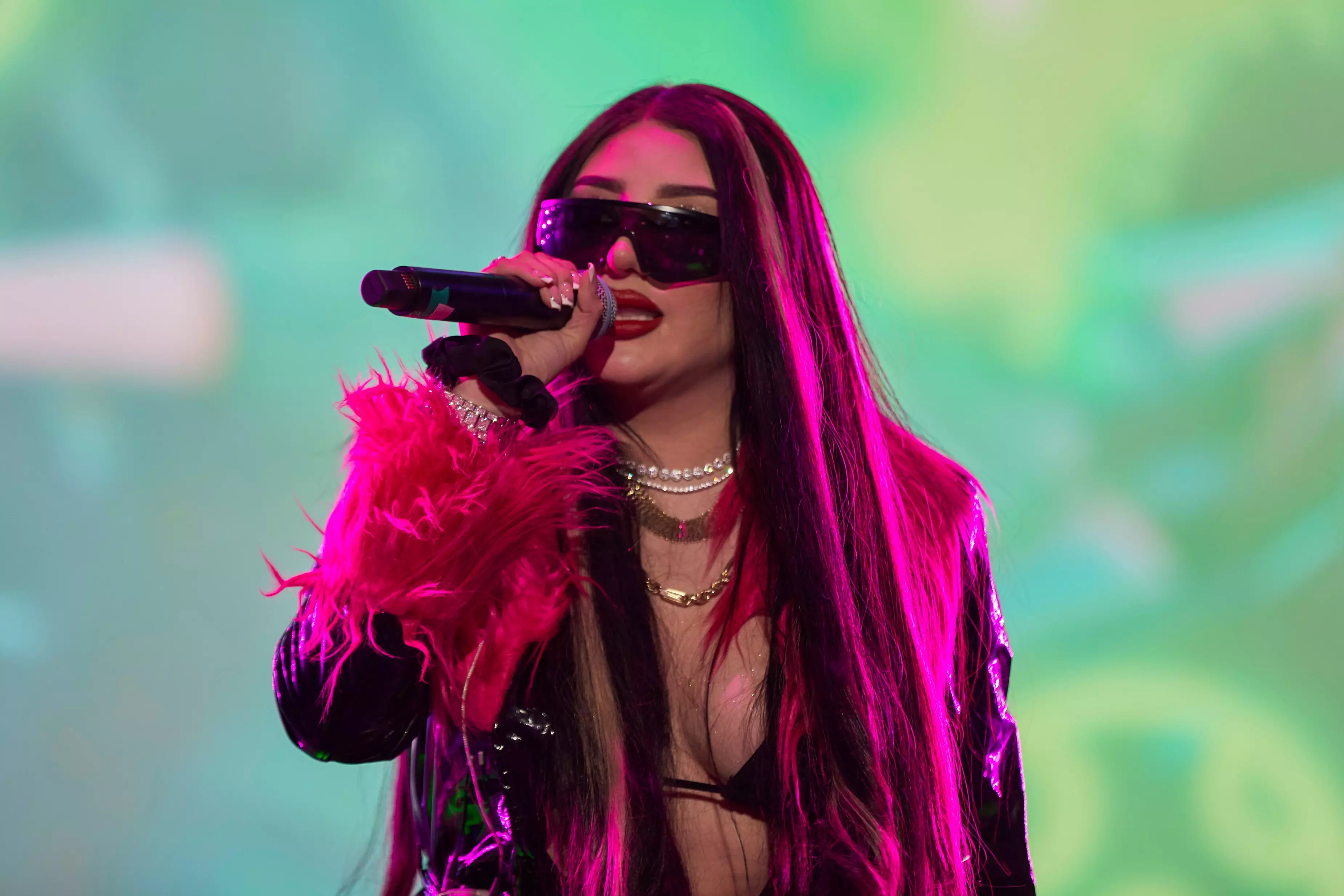
7 Artists Bringing Reggaeton Mexa To The World: El Malilla, Bellakath & More
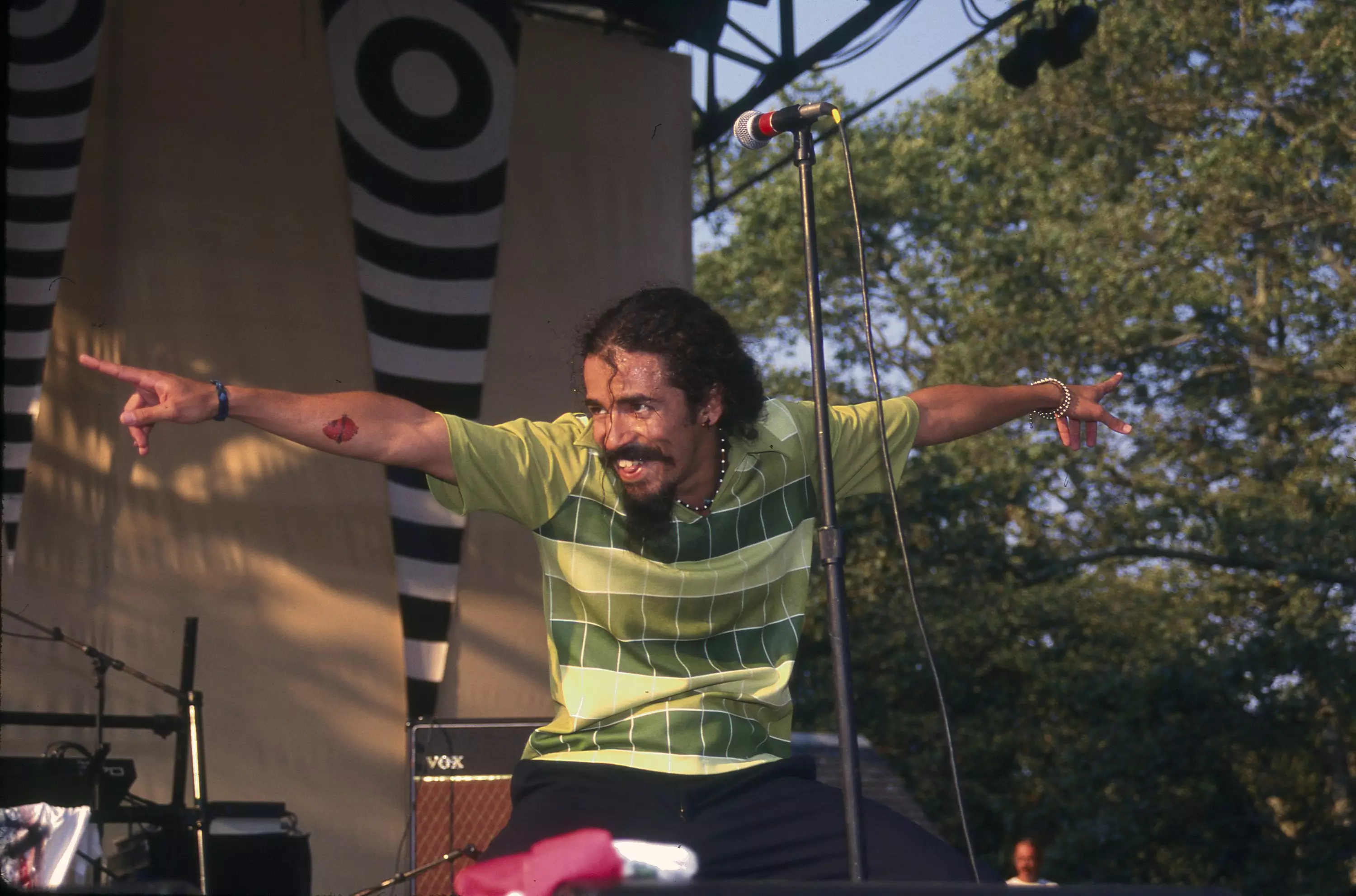
Revisiting 'Re': How Café Tacvba’s 1994 Masterpiece Changed Mexican Music Forever
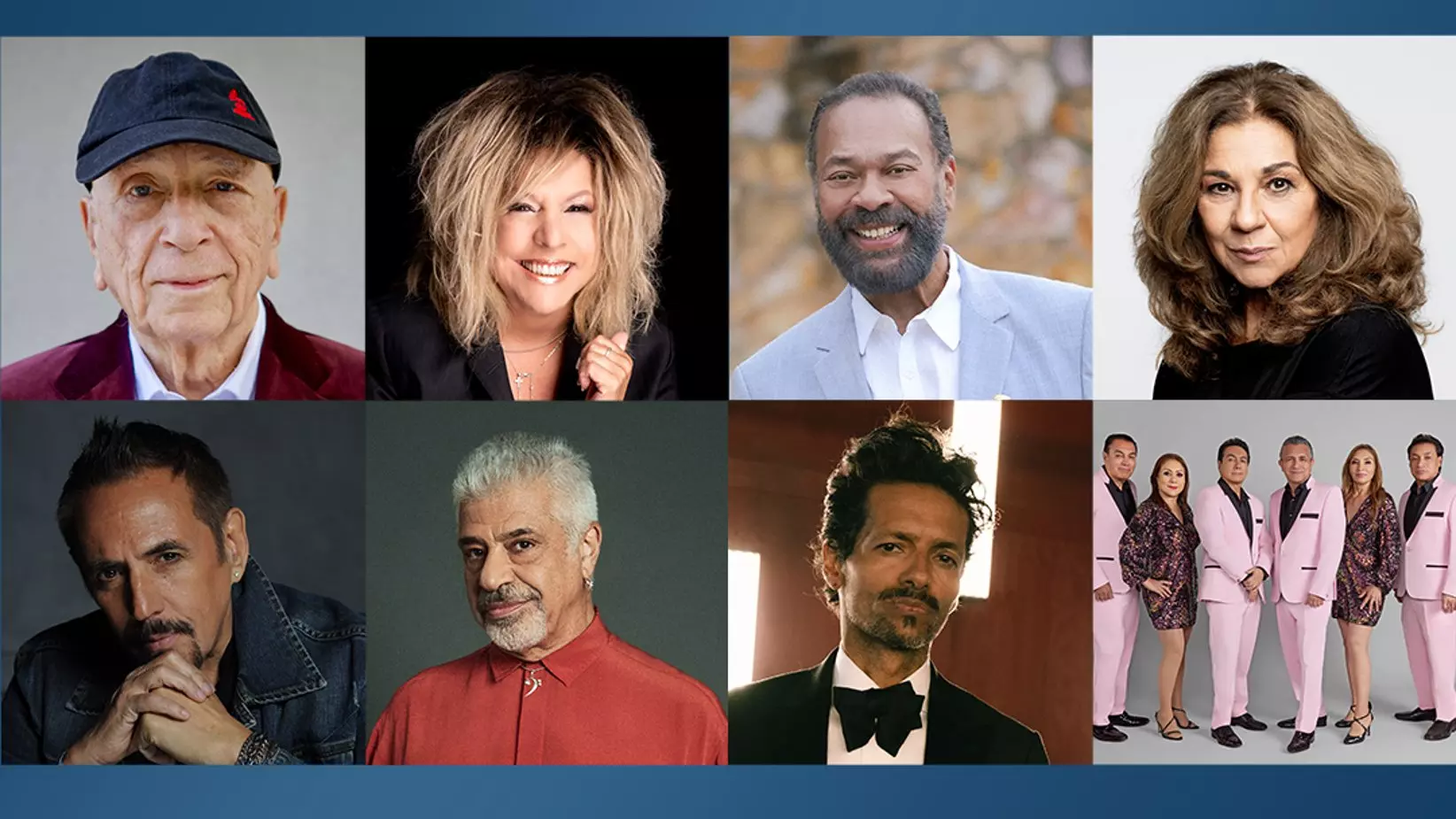
The Latin Recording Academy Announces 2024 Special Awards Recipients: Los Ángeles Azules, Draco Rosa, Albita, Lolita Flores & More
Rafael Catana, an influential folk-rock musician in Mexico City who has hosted a music show on government-funded radio since 1997, says Caifanes' last album "arrived at a crucial moment in Mexican history" when the country was undergoing a massive social and economic transformation. Both sonically and in its production, El Nervio reflected the conflict between Mexico's interest in transnational capitalism and its underclass.
In the early 1990s, elites had opened the country to a flood of foreign corporate investment with the North American Free Trade Agreement. On Jan. 1, 1994, an armed indigenous uprising against those policies by the Ejército Zapatista de Liberación Nacional challenged the government unlike any other group had attempted in decades. (Security forces had warned against political dissidence when they massacred student protesters in Mexico City in 1968 and launched a dirty war to round up "subversives" and marginalize the counterculture, including rock bands).
While El Nervio doesn’t explicitly mention any of these historical points, it is clearly a product of the era, filled with evocations of Indigenous musical traditions despite being produced by a major corporate label. During the tour in support of the album, the band made it clear that they were on the side of Mexico’s most oppressed class, with footage of Indigenous villages and archeological sites shown during their concerts. Hernández would sometimes call on audiences to support Mexico’s native people.
Backstage, the relationship between Marcovich and Hernández became impossible and contributed to the breakup of the band. The rupture between them would become a subject of headlines in the media. Though the exact details of their conflict remain vague, the band played their final show on Aug. 18, 1995, in San Luis Potosí. A legal dispute over the name Caifanes endured for years.
By the time Caifanes broke up, rock en español was entering a new phase led by the indie-folkloric experimentation of Café Tacuba. Other musical trends also started emerging: the rap-rock of Molotov, the electro of Plastilina Mosh, the commercial explosion of Juanes' tropical pop, the Caribbean alternative rock of Aterciopelados.
In the interim, Hernandez formed a new band with André. Their Jaguares channeled a more aggressive sound, and their 2008 album 45, took home a golden gramophone for Best Latin Rock or Alternative Album at the 2009 GRAMMYs. In 2011, the original members of Caifanes reunited to play Coachella.
But the truce between Hernández and Marcovich didn’t last, and the guitarist once again left the band. A reunited Caifanes, with original members Hernandez and André, are on tour in 2024 with fellow Mexico City rockers Café Tacuba.
Mexican music journalist David Cortes, who has written several books on Latin American music, said the band was at their creative peak with El Nervio Del Volcán and had established a striking balance between traditional music and foreign sounds. Ultimately, though, the break-up of the band limited its influence over the years.
"They wanted to go further," he says in Spanish. "And there are hints of where they might have gone."
Latest News & Exclusive Videos

20 Years Of All Time Low: Alex Gaskarth Looks Back On The Band's Career Milestones

An Exclusive Look Inside The Recording Academy's New Member Welcome Week 2024: CEO Harvey Mason jr. Chats With Lainey Wilson, DEI, Advocacy & Much More

Meet ME:I, The J-Pop Group Who Want To Give The World A 'Hi-Five'

The Essential Nick Cave: 10 Songs Highlighting His Dark Brilliance

'About A Woman' Named Lauren: How Thomas Rhett's Wife Inspired His New Album
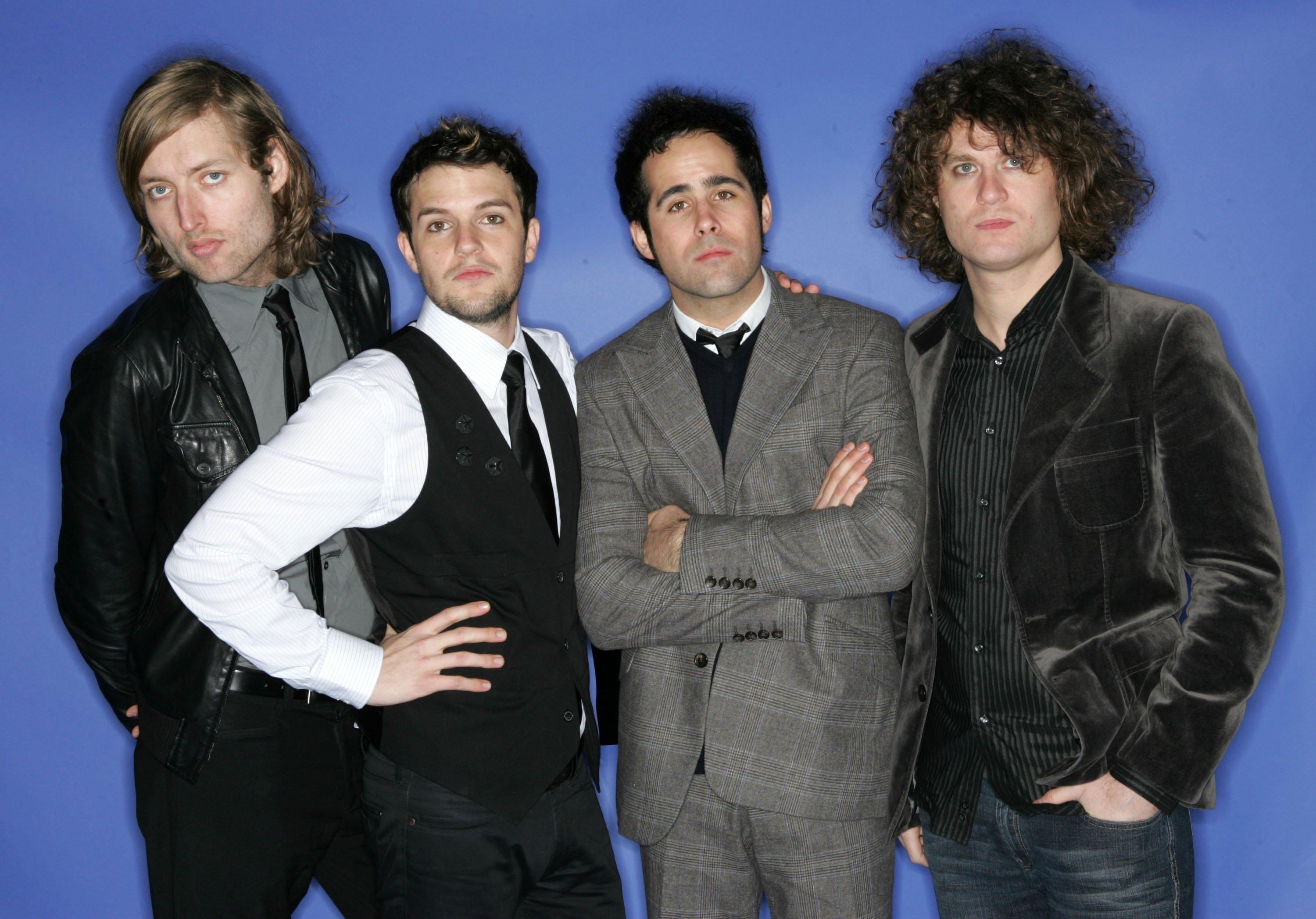
Photo: Frank Micelotta
list
5 Ways ‘Hot Fuss’ Propelled The Killers To Rock Royalty
During the alternative-guitar-band renaissance of the early 2000s, the Killers slugged out a debut album that’ll stick with us forever. Here are five reasons ‘Hot Fuss’ catapulted the Vegas favorites to the top.
They came out of their cage, and now they're doing just fine.
In an era of stiff competition, from the White Stripes to the Strokes, the Killers could have gotten lost in the shuffle. But with 2004's Hot Fuss, the Brandon Flowers-led, Vegas-based rock band essentially emerged fully formed, with a debonaire mystique, a raided new wave record collection (think the Cure and Duran Duran), and a knack for sky-high hooks. They didn't just nail the songs, and charisma, on the first go — they created one of the most timeless albums of their generation.
In the 20 years since, chances are "Mr. Brightside" has gotten maddeningly stuck in your head at least once. But that's just the tip of the iceberg: Hot Fuss is teeming with cryptic one-liners, sticky melodies and a specifically aughts sort of emotional abandon.
Today, the Killers are one of the biggest rock bands of the 21st century, with five GRAMMY nominations and more than 28 million records sold worldwide. Here are five aspects of Hot Fuss that helped them break into the stratosphere.
It's The Result Of A Completely Scrapped First Attempt
Sometimes, the first thought isn't the best thought. The Killers were full steam ahead on their debut album when Flowers hit a major snag: a little album called This Is It by the Strokes came out.
"When we put it on in the car, that record just sounded so perfect," Flowers admitted to NME in 2012. "I got so depressed after that, we threw away everything, and the only song that made the cut and remained was 'Mr. Brightside.'"
How would the Killers' legacy have changed without classics like "Somebody Told Me" and "Jenny Was a Friend of Mine"? We'll never know — but the band (and the world) is likely glad they gave Hot Fuss a second shot.
Brandon Flowers Is A Superb Lyricist
Did you know Hot Fuss has an extended murder narrative? Well, in two songs: "Midnight Show" and "Jenny Was a Friend of Mine." (The third act, "Leave the Bourbon on the Shelf," was relegated to their 2007 B-sides and rarities disc, Sawdust.)
Outside of sprawling concepts, Flowers' sneaky prowess as a lyricist is all over Hot Fuss, from sticky alliteration ("Turning saints into the sea/ Swimming through sick lullabies") to masterful use of negative space.
Exhibit A is "Smile Like You Mean It": "Someone is calling my name/ From the back of the restaurant/ And someone is playing a game/ In the house that I grew up in/ And someone will drive her around/ Down the same streets that I did." By erasing the specifics, and only providing a framework of memory, the picture is ever more elusive and intriguing.
The Album Is Front-Loaded With Five Bangers
Sure, some tracks on Hot Fuss, like "Change Your Mind" and "Believe Me Natalie," are relatively minor.
But with absolute napalm across the first five tracks — "Jenny Was a Friend of Mine," "Mr. Brightside," "Smile Like You Mean It," "Somebody Told Me," "All These Things That I've Done" — it's actually kind of a relief to get a sleeper album track, that reveals its qualities slower.
No matter your take on the rest of Hot Fuss, or their discography, the fact remains undeniable: they came in swinging.
They Kept The Demos Intact For Raw Impact
The Killers and the Boss have crossed paths a time or two — and they made a Springsteenian move when they used demos as the final tracks. It worked, imbuing Hot Fuss with a certain spontaneity and energy.
And because these Hot Fuss tracks were meant to comprise a demo, "We never thought [these songs] would be on a record." drummer Ronnie Vannucci Jr. later admitted. Talk about a turn of events: what could have been a collection of scratch tracks would help define a generation.
"Mr. Brightside" Took On A Life Of Its Own
"Mr. Brightside" has undeniably become the Killers' signature song — a staple not only at their concerts, but at bars and karaoke joints around the world. And once social media came along, it inspired a cornucopia of memes: even snippets of lyrics, like "Comin' out of my cage" and "It started out with a kiss, how did it end up like this?" have become miniature cultural forces.
Aside from Flowers' almost unwaveringly single-note verse melody, the song's odd structure — the second verse is the same as the first — has also been ripe for humor: one favorite meme takes you into the fictional writer's room when that decision was made.
Whether for rock 'n' roll transcendence, or just a nostalgic laugh, revisit Hot Fuss as it turns 20 — and smile like you mean it.
Is This It At 20: How The Strokes Redefined Rock
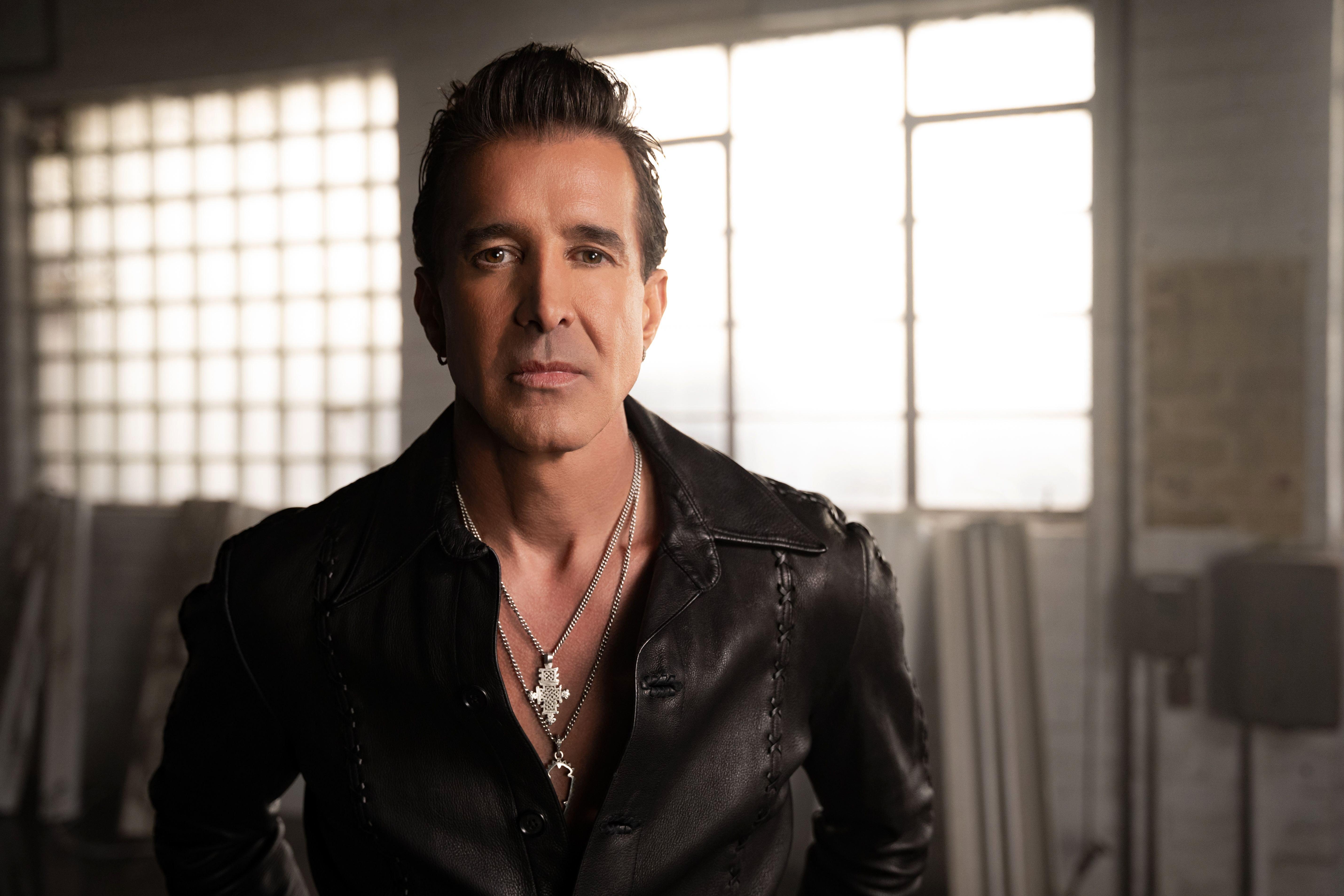
Photo: Matt Akana
interview
Creed's Scott Stapp On New Solo Album 'Higher Power,' Sobriety & Being "A Child With No Filter"
In an in-depth interview, Creed's Scott Stapp discusses being a survivor, recommitting to God, and his bludgeoning, cathartic new solo album, 'Higher Power.'
Scott Stapp prefers Zoom with the camera off, but for a minute, he flips it on to say hello. The Creed frontman reveals himself to be alone on his tour bus, in near complete darkness, encased in a black hoodie.
"You look like a Jedi," his rep quips in an adjacent Zoom window. "They're training me," Stapp quips back.
Twenty-five years ago, this might be a breeding ground for his inner hellhounds, his unprocessed torments — as he sang, his own prison. But a sweatpants-clad Stapp looks relaxed, grounded, rooted; after this interview, he's eyeing a nap in the belly of this beast.
Stapp is a vocal proponent of recovery culture, and his language is permeated with it — God, squaring up with your ego, taking it one day at a time. "Some of us, we're so allergic to alcohol, so allergic to drugs," Stapp explains, "that when we use them, we break out in handcuffs and end up on the six o'clock news. And that's been my story, no doubt."
You can Google these stories; they're out there. While he's in no mood to recapitulate details to the press — who would be? — his new solo album, Higher Power, out March 15, directly addresses everything he's been through.
The title track begins with the line, "Forty feet down falling/ Headfirst off the edge" — and, well, that happened. (The rapper T.I. saved him, not knowing who he was at the time; Stapp later called him his "guardian angel.") By the chorus, Stapp frames what followed as a resurrection: "The day that I died was the day I came back to life."
At the zenith of Creed's career, Stapp pleaded "Can you take me higher?"; on Higher Power, this request seems to have been greenlighted. Which doesn't mean he has a messianic complex; Stapp doesn't project a shred of solipsism. He's just doing what he's meant to do.
"I don't pay attention to what's going on or try to follow trends, try to write to ride a wave or to catch something that's hot in the moment," he says.
What can he say? He's just Stapp — the same he's ever been, with a new album, a reunited Creed (who are about to head on tour) and a new lease on life.
This interview has been edited for clarity.
The song "Black Butterfly" is a great reminder that recovery isn't a one-and-done thing. It's a continuum, with peaks and valleys. Can you talk about that?
Well, it's absolutely a continuum and I think it not only applies to sobriety, but I think it applies to growth as a human being in general in every aspect of your life.
Just as we try to evolve…it is always five steps forward, three steps back. As long as you're continuing to move forward and learning from every setback, that's where true growth happens.
"Black Butterfly" represents so much, and I don't really want to get into the details of every aspect of what that song meant to me. Clearly, it involves a rebirth, but there's many contextual layers on that song in terms of the depths of the rebirth and what rebirths I'm talking about. But if we want to apply that to sobriety, there's definitely a continual process of cocooning and rebirthing.
Relapse has been a part of my story. It's not a part of everybody's, but it's been a part of mine. And each time that I have, I've definitely learned where a chink in my armor was that I was unaware of.
I also learned that I can't ever get overconfident. I can't ever think I've got it. I have to always stay on guard and continue to take it one day at a time and be vigilant. And then as time goes on, you get into a place where it becomes a lifestyle and a routine.
I'm glad you're on the good foot.
I just continue to grow, man, and take it one day at a time and know that God is doing a work in me in such a profound way, not only through my sobriety, but through my spiritual life.
One thing that you learn in recovery is the key to sobriety is the condition of you as a spiritual being. And for me to finally make that connection and tie it back to the roots of my faith — that really kind of put a bow and an icing on top of the cake, because everything started making sense.
I've always been interested in spirituality, but we live in a relentlessly anti-spirit world. How do you keep that antenna up when we're all deluged by the "make money and shut up" attitude?
It's a daily commitment to wake up and get into prayer — from my perspective as a Christian, getting in the word of God. Reading, surrounding myself with other like-minded people who do the same thing, as we edify and help each other grow in the spiritual walk that we have together.
When you embrace it and you make it a part of your lifestyle, surround yourself with people who have the same passion, drive, and heart in seeking that, then it creates the perfect storm for spiritual growth. And I'm fortunate to have that around me right now.
*Scott Stapp performing with Creed in 2003. Photo: Chris Trotman/Getty Images for NASCAR*
When Creed were on top of the world in the early 2000s, I'm sure your Christian ethics were completely at odds with everything going on around you.
Oh, 100 percent. And I also had this inflated, youthful ego; I thought I could handle it on my own, and didn't have any support around me. And you live and learn.
I help younger artists now who are going through similar situations and entering this business and let them know how important it is to surround yourself with support. And for those that don't have family, like I didn't, we really create a team.
Because this is a gift that we have — this career in music — and we can become so easily dismantled and it can be robbed from us by the trappings that come along from success and the temptations of the world. We're blessed with this opportunity to be creatives for a living. And so to nurture that, cherish it, protect it, look at it with professionalism and gratitude.
For those that don't have an issue with having a few drinks every now and then, do it on your off days. But when it's showtime and when it's a workday, look at it that way — with a vigor and passion of someone who's trying to be the best at what they do with their craft in their job.
That way, you can preserve it and it can be long-lasting, and you won't shoot yourself in the foot with self-sabotage.
Higher Power is such a production bulldozer. Can you talk about crafting the sound of it?
I was just creating those songs with my guys that I write with, in real time, as I was feeling inspired. I was trying to stay true to what I do, how I feel, and just continue to try to lyrically and sonically create cinematic pieces of art.
Fortunately, by the way that it was created, there was a theme and each song kind of bled into the other and were held together by a singular thread — which was the impact that God, my higher power has had in my life throughout the ups and the downs and was always there even at my darkest times.
And I think I addressed that in Higher Power. It's resounding with them in its sonic presentation and lyrical narrative.
You said you're looking to "create cinematic pieces of art." What role does the cinema play in your life? Do you think of great rock songs as being akin to mind movies?
No, I think I refer to that more in terms of how I'm creating the picture, not necessarily any reference points on any films. I'm trying to create something cinematic. I'm trying to create something that when it's heard, well, hopefully when someone connects, paint a picture in their mind of an experience and not only just connect with them on a personal level.
I think that's something I've always tried to do lyrically since I started writing songs. Since my first professional record in 1997, with My Own Prison, I think it's just been a part of the way that I create. And I think I really wanted to intentionally focus on that, in terms of the production and the music beds that went around the themes that I was talking about.
And I definitely think we did. I think my producers, Marti Frederiksen and Scott Stevens, captured that. I'm proud of what we did, and I feel that this is my best solo work to date.
And I've got a song I'm very proud of. It's a duet that I did with the Rock Queen herself, Dorothy, which will be out this Friday. And I'm very excited to share that song and everything that's coming with it because I think it's just a centerpiece of this record and a theme that really is what this album is: the walls talking.
The first line of "Higher Power" reflects a very traumatic event in your life; I don't need to recite it back to you. You're a very candid and honest cat.
I mean, if you go back to 1997 and you listen to "My Own Prison," that's probably one of the most personal and confessional songs I've ever written. That's the only way that I know how to write. That's the only way that the inspiration, the creativity comes out of me.
I bear my soul. I talk about my flaws, my weaknesses, my failures, the dark times. I just speak what's in my heart. I mean, I think that's probably a part of being a child with no filter. And that's kind of translated into how I write lyrics. I just say how it is and how I see it, how I'm observing it, how I'm experiencing it.
And call it what you will, but I call it my style. However you want to interpret that is cool. And I appreciate that you hear the vulnerability and the honesty in that because that's where it comes from.
I remember the early 2000s as a highly macho world — of raunchy comedies, shock jocks, getting called the f-slur on the playground. In the hard rock world of that time, I'm sure vulnerability was steamrolled over.
Well, I know that we came out with a song called "One Last Breath" in 2002, which was clearly a cry for help and vulnerability. So, I don't think I was paying too much attention to what was going on around me and what other people were doing. I never really have, I just do what I do.
And so it was kind of the antithesis of what you just described. You're talking about this macho era, and I'm writing lyrics, "Please come now, I think I'm falling/ I'm holding onto all I think is safe/ I think I found the road to nowhere, and I'm trying to escape."
I don't pay attention to what's going on or try to follow trends, try to write to ride a wave or to catch something that's hot in the moment. I really don't pay attention to the outside world.
That seems to be a throughline of your career.
To be honest with you, I'm a bit of a recluse. And when I was younger, I kind of romanticized that loner poet sitting under a tree, writing lyrics in a book, observing the world around him.
And I guess, looking back, that wasn't so much of a romantic approach, but more of just who I was and me trying to come to grips with it and accepting that that's who I am and being comfortable with it.
I think sobriety and clarity has helped me become comfortable with it — because I think that part of the reason I overindulged at times is because I never really felt comfortable around crowds. I never really felt comfortable around groups of people and socializing and mindless conversation and chit-chat. I think that's fine and that's great for other people, but it never really worked for me.
So, it's nice to be in a place in life all these years later, where you find your tribe and you find the people that speak your language, and are like-minded, and feel comfortable and safe there.
*Scott Stapp performing in 2023. Photo: Jerry Kingwell — Revelry Studios*
Back then, the mean-spirited humor about Creed couldn't have jibed with your psychological state. These days, you take it all in good fun, but back then, it must have been like poison.
You know, it didn't line up with what we were experiencing. It was a media narrative that was created. I can't look back and say that there were times where it didn't hurt and where I didn't understand. You've got stadiums on hold and you're selling out every arena in America, but then you're reading articles that you're this hated band, and it's just not lining up.
And we didn't have social media to talk back and correct things that were said. Not that I would even do that now, or waste my time.
I definitely feel that some of that did affect me in a negative way, and I didn't handle it appropriately. I would actually say that some of it probably caused some trauma, and the only way I knew how to do that was numb the pain.
We're in a different place now. We've got much thicker skin, and know what's important in life, and know whose opinions matter. But when you're young and that happens, it definitely has a profound impact on you. And I think was a big contributing factor — one of the reasons the band split up. I mean, there were others, but it was kind of a domino effect.
All in all, you seem to be in a really healthy and positive spot. Where do you want to go from here?
Right now, I'm in the moment. The album hasn't come out yet. I feel like we're at the very tip, tip, tip of the iceberg on this record. We've got the Creed stuff in between, and something tells me in my heart that this album's really going to be making continual impact all the way through 2025.
I'll be doing some solo touring and promotion in between the Creed stuff along the way, and then I look at 2025 as a continuation of the Higher Power tour and promotion.
Not to be clichéd, but I think the best is yet to come for this record, and we're at the beginning. So, I'm just taking it one day at a time, man.
The Salvation Of Chris Daughtry: How He Conquered Music-Biz Machinations & Fear Of Irrelevance For Triumphant New Album Dearly Beloved
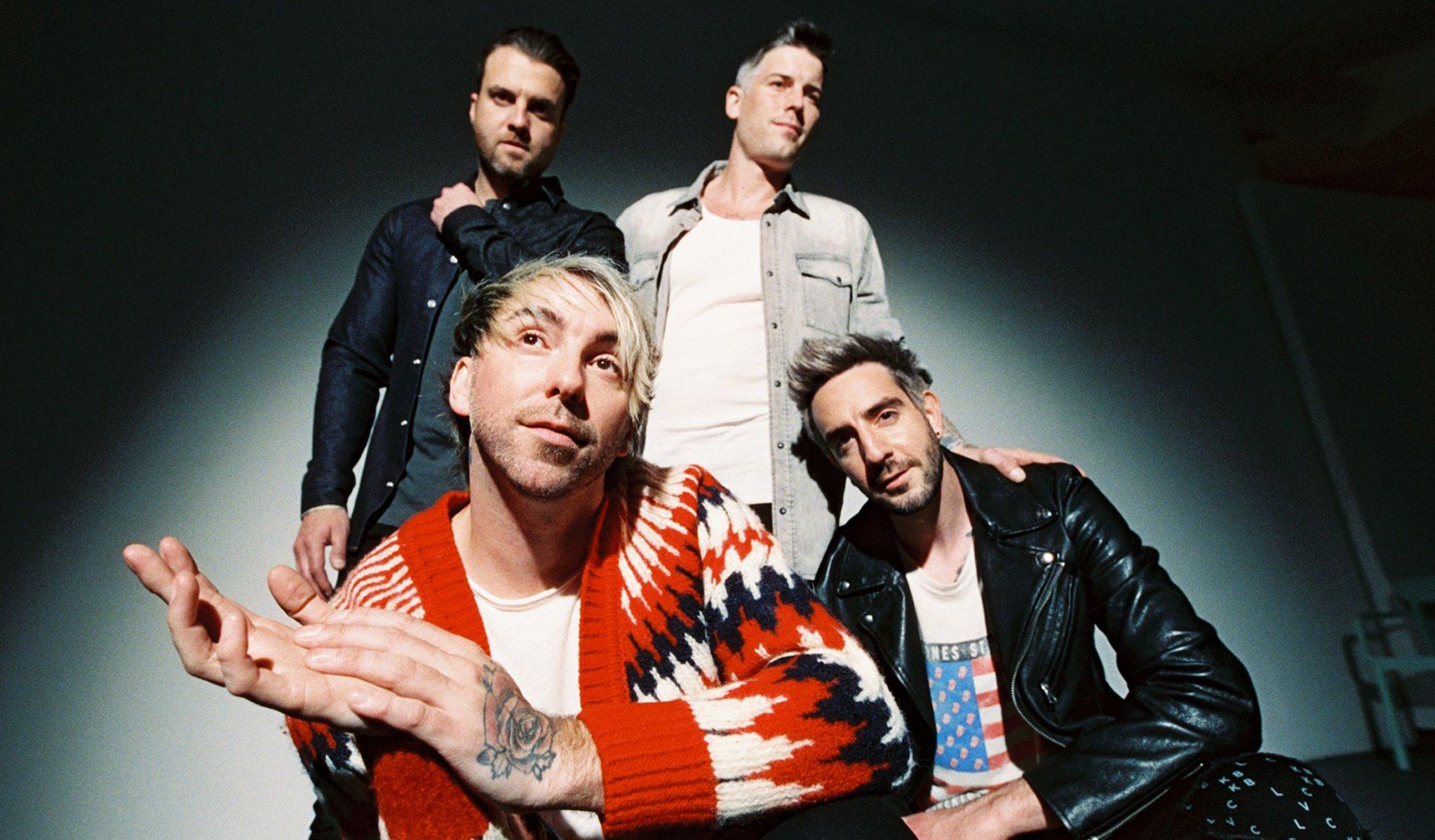
Photo: Ashley Osborn
photo_gallery
Tour Diary: See All Time Low's Favorite Photos & Memories From The Sound Of Letting Go Tour
Go backstage with All Time Low on their 2023 fall tour across North America with Gym Class Heroes and Lauran Hibberd, from playing an acoustic show in the rain to returning to some of their favorite venues.
Even after 20 years, All Time Low still relish their time on stage every night. And as frontman Alex Gaskarth said just a week after starting their latest trek, "there's some kinda magic happening on this tour."
Perhaps it's the fact that the Baltimore-born pop-punk band have new music to perform (their ninth album, Tell Me I'm Alive dropped in March), or that they're sharing the stage with longtime buddies Gym Class Heroes. But whatever it is, The Sound Of Letting Go Tour is a special one for the band and their fans alike.
With a few shows left to go on the North American stretch, All Time Low shared some of their favorite onstage and behind-the-scenes moments from the 25-date trek, which wraps in Portland, Oregon, on Oct. 17. (But they're far from done — they'll play the When We Were Young Festival in Las Vegas, followed by five dates in Australia in November and another five in Brazil in March 2024.)
Below, check out a collection of photos from All Time Low's The Sound Of Letting Go Tour, captioned by Gaskarth himself.
All photos by Salma Bustos.
Sept. 8 — Maryland State Fair, Baltimore, Maryland: Making lemonade out of lemons — what should've been the first show in our hometown ended up getting canceled due to crazy storms in the area. Luckily we were able to reschedule the show, and [did] a little impromptu acoustic-performance [that] had us feeling right as rain.
Sept. 10 — MGM Music Hall, Boston, Massachusetts: Some sagely advice from the man, the myth, Mr. Travie McCoy [Gym Class Heroes' lead singer]. We've known each other for a long time and go way back to the days that we were still just starting out as a band in high school, opening up for Gym Class Heroes at the Otto Bar in Baltimore. It's great to be back out on the road and sharing the stage with them now.
Sept. 10 — MGM Music Hall, Boston, Massachusetts: This is one of my favorite pics our photographer Salma Bustos captured of me during a piano break in the set. She's always spotting the special moments, but there's something really classic-feeling about this picture.
Sept. 10 — MGM Music Hall, Boston, Massachusetts: Life on the road is all about finding balance between the extreme highs of the stage and the quiet moments. It's not always easy to feel totally normal out here, so the little comforts of watching a football game with all the boys can be super grounding. Here we are cheering on the Ravens backstage in Boston, while the Orioles played the Red Sox literally right next door.
Sept. 12 — The Rooftop at Pier 17, New York, New York: This is Trav straight-up embarrassing me with his piano prowess in New York.
Sept. 12 — The Rooftop at Pier 17, New York, New York: Every day we throw a soundcheck party for a smaller group of fans where they can experience some tunes a bit more up-close and personal, ask us some questions, hang out and be merry. I feel like it's a cool way to interact with our most invested listeners and have some laughs about old songs and what we had for breakfast.
Sept. 14 — Maryland State Fair, Baltimore, MD: This is Jack trying to be as cool as [opener] Lauran Hibberd and her bandmates. Unfortunately it's just not possible to be as cool as they are because they're English (and fortunately I am too).
Sept. 17 — The Fillmore Philadelphia, Philadelphia, Pennsylvania: Who doesn't love confetti at a rock show?! Always makes the crowd go nuts and makes for some amazing photos. This was the opening of our show, setting things off with a bang.
Sept. 17 — The Fillmore Philadelphia, Philadelphia, Pennsylvania: We recently released a new track featuring Avril Lavigne, who obviously isn't out on the road with us but was kind enough to film some rad content to add into our show to make the song really come to life. This picture is the first time we played the song live, I think!
Sept. 19, 2023 — L'Olympia, Montreal, Quebec: We wanted to add an element of theater to our live show and nothing beats a simulated curtain opening to set the stage during what's become one of the rowdiest songs in our set, "Calm Down."
Sept. 22 — The Fillmore, Detroit, Michigan: Lauran's been joining us on stage every night to perform our song "PMA." She had the best outfits and is probably the best dressed on the tour. Here I am during our show probably thinking about what I need to do to step up my wardrobe game.
Sept. 23 — Byline Bank Aragon Ballroom, Chicago, Illinois: A big ol' sold out show at the Aragon Ballroom in Chicago! One of my favorite venues to play and this show in particular was a highlight of the tour. Amazing energy from the crowd and so much nonstop dancing.
Sept. 27 — Coca Cola Roxy, Atlanta, Georgia: This is one of my favorite moments in the set. We bring someone on stage to push a button that randomly selects one of four old ATL songs. Looks like this night we landed on "Vegas" and high-fived it out because we were all happy with that outcome.
Sept. 29 — The Ritz Ybor, Tampa, Florida: Pretty sure this is James, Lauran's drummer, doing his best impersonation of [All Time Low's drummer] Rian [Dawson]'s drumming backstage in Tampa. Gotta get your mean face on.
Oct. 6 — The Van Buren, Phoenix, Arizona: After-show pizza, video games and our good friends in Grayscale kicking it in the green room.
10 Pop-Punk Albums Turning 20 In 2023: Fall Out Boy, Blink-182, The Ataris & More
